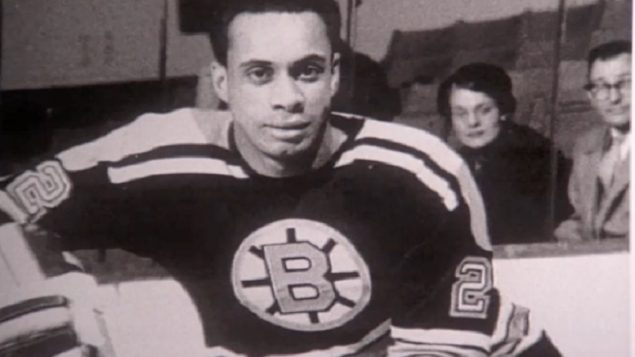Find out more about black Canadians who contributed to the building of Canada and who are making their mark every day.

From our archives
Danger, hardship, heroism and tragedy. All are features of black immigration to Canada in the nineteenth century.
The story of black immigration to Canada began 400 years ago with the arrival of the French at Port Royal. John Graves Simcoe, the Lieutenant-Governor of Upper Canada, signed the Act Against Slavery in 1793.
Many black people came to Canada by their own means. But the Underground Railroad, an informal network of people and places organized to help black people escaping slavery, was an important feature of immigration to Canada in the nineteenth century.
It’s estimated that between 20,000 and 40,000 black people arrived in Canada during the first half of the nineteenth century. Some consider that the number could be as high as 60,000.
Radio Canada International has produced a series of vignettes spotlighting some of the black Canadians that have marked the country’s past, as well as those that are marking Canada’s present.
Researchers: Nataly Lague, Audrey Flat
Editors: Suzanne Shugar, Audrey Flat
Translator: Nataly Laguë
Sound recording, sound effects, sound mixing: Angela Leblanc
Producer; casting, music selection: Suzanne Shugar
Executive Producer: Raymond Desmarteau
A Radio Canada International production
1 – Slavery Triangle
The transatlantic salve trade forced millions of black Africans into bondage.
2 – Mathieu DaCosta
The first recorded person of African origin to have set foot in Canada.
3 – Olivier Le Jeune
The first recorded black slave in Canada was a child.
4 – Slavery Laws
Laws legitimized the abuse of slaves.
5 – Slaves Rebels in America
Fuelled by their longing for freedom insurgent slaves retaliated against their owners.
6 – Africville in Nova Scotia
The heart of the African Canadian community was destroyed.
7 – Josiah Henson
The remarkable life of this slave inspired the creation of the famous novel Uncle Tom’s Cabin.
8 – Harriet Tubman
The courageous “conductor” on the Underground Railroad led hundreds of slaves to freedom in Canada
9 – Anti-Slavery Movement in Canada
Distinguished black and white activists campaigned for the abolition of slavery.
10 – The Press and the Anti- Slavery Movement
Leading Canadian publications advocated freedom from bondage.
11 – Mary Ann Shadd Cary
The first black female newspaper editor in North America.
12 – William Hall
The first black Canadian to earn the highest military distinction in the British Commonwealth.
13 – Sam langford
The formidable black boxer was also known as The Boston Terror.
14 – George Frederick Johnson
The brave young man who fought alongside Whites during World War Second.
15 – Lou Hooper
A descendant of fugitive slaves becomes a leading jazz pianist.
16 – Portia White
The classical concert signer from Nova Scotia achieved international fame World War Second.
17 – Oscar Peterson
The jazz legend’s unique technique redefined the art of playing the piano.
18 – Charlie Biddle
The beloved musician revolutionized the jazz music scene in Canada.
19 – Dr. Hervé Blanchard
The pioneer in pediatric liver transplants saved countless lives.
20 – Dany Laferrière
The author became a huge success by poking fun at racial stereotypes.
21 – Michaëlle Jean
Canada’s first black Governor General.
22 – George Elliott Clarke
The author describes the rich oral narratives and cultural traditions of Blacks in Nova Scotia.
23 – Maka Kotto
Poet, actor, stage director, and first black Afrcan elected to the Canadian Parliament.
24 – Suzette Mayr
The author spotlights issues involving race and ethnicity interethnic people.
25 – Donovan Bailey
The athlete’s meteoric rise to fame is one of Canada’s remarkable success stories.
26 – Black History Month
Every February Canadians celebrate the history of Blacks in Canada.
27 – Slavery Remembered
The abolition of slavery was commemorated in 2004.





